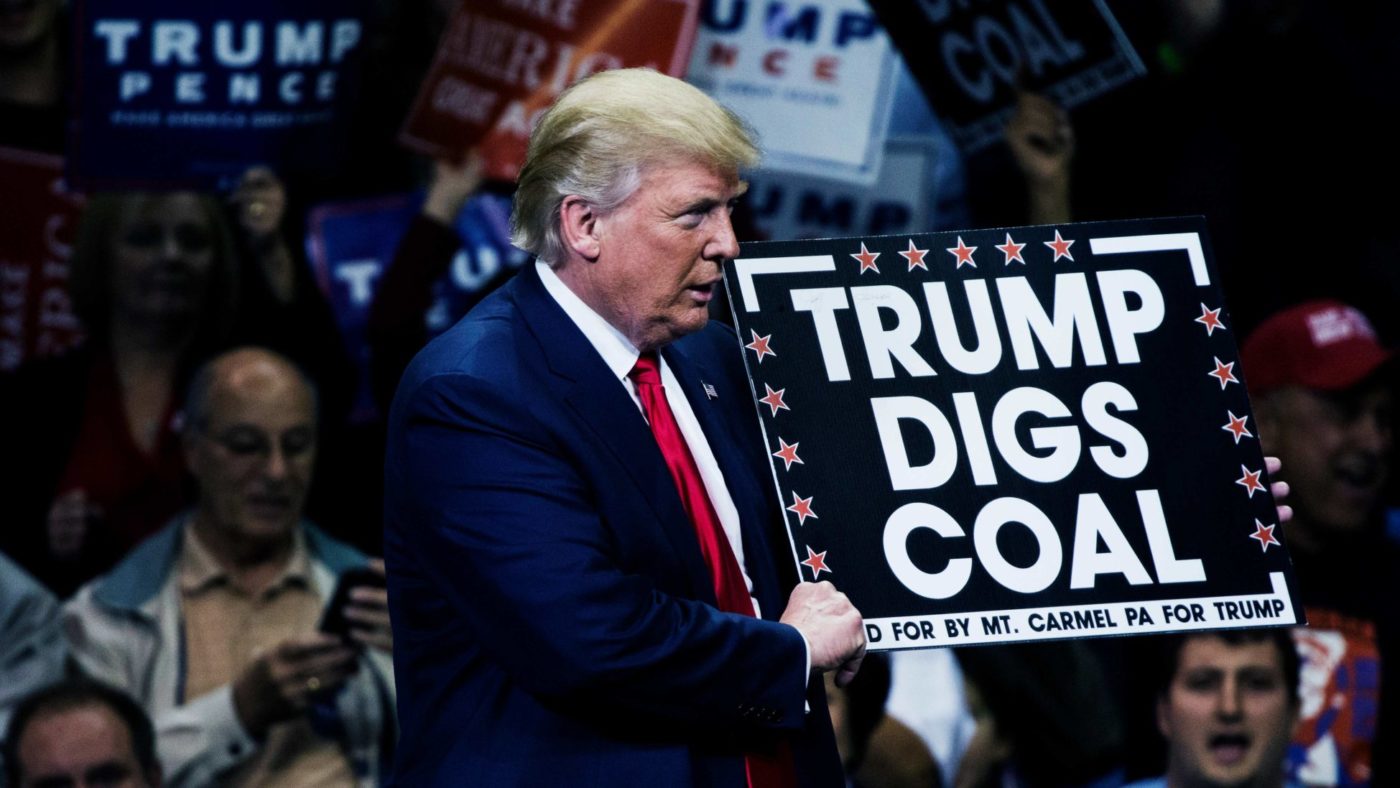Despite making endless campaign promises that Mexico would pay for his border wall, Donald Trump has found that the real world is harder to bend to his will than the Republican Party. After being rebuffed by both the Mexican president and Congress, the self-anointed master dealmaker has been forced to declare a national emergency to raid government coffers to pay for the wall. Time will tell if it withstands a coming Senate vote and legal challenge.
Trump took to Twitter recently in a bid to try and shore up another failing campaign promise; reviving the US coal industry. Trump publicly called on the Tennessee Valley Authority not to close an ageing coal power station, Paradise Unit 3, just days before the TVA board met to decide the loss-making plant’s fate.
That’s not all. Politico revealed that the plant gets the bulk of its coal from a subsidiary of Murray Energy, a mining company whose CEO, Robert Murray, is a big Trump supporter whose company donated $1 million to a Trump-supporting super PAC called America First Action.
Murray has denied making any intervention on behalf of the plant but Politico reported that he has lobbied the President to take other actions to help the ailing industry in regions where he sells coal. Trump has also nominated former Murray Energy coal lobbyist, Andrew Wheeler as boss of the US Environmental Protection Agency.
Despite Trump’s efforts, last week the TVA announced the 49-year-old Paradise 3 would close. It’s a sign of the President’s growing impotence that even his public petitioning of a government-controlled agency to keep a coal plant open in Trump-supporting coal country, has failed.
For all his pro-coal campaign rhetoric, the first two years of Trump’s presidency have seen more coal plants close than Barack Obama’s entire first term. Despite Trump’s cronyism, market forces are winning out. It’s no wonder coal plants are shutting when it is now cheaper to build new wind and solar than even keeping existing coal-fired plants open. Since 2009 the cost of solar has dropped 88 per cent and wind 69 per cent. In fact a recent report from analysts Carbon Tracker showed that 42 per cent of global coal capacity is already unprofitable and the US could save $78 billion by closing plants in line with the Paris climate agreement compared with business as usual plans. The EU could save $89 billion.
Coal is getting beaten on price outside of the US too. New wind and solar are already cheaper than coal in Australia, Brazil, Chile, China, Germany, India, Thailand, the UK and Vietnam. In Malaysia, the Philippines, Poland and Japan, the tipping point could come within months. In fact London hedge fund manager Per Lekander predicts that the combination of falling renewable costs and a rising carbon price will lead to coal demand in Europe falling to almost zero within three years. These market-driven solutions to environmental problems should be welcomed and encouraged.
The coal world was shaken last week by the news that Glencore, the world’s largest supplier of thermal coal, and until now it’s loudest cheerleader, announced that it would cap production, citing climate change concerns. It said it would focus more on battery components such as nickel, zinc, vanadium and cobalt as it targeted lower carbon industries. Bloomberg’s David Fickling wrote: “When the biggest producer calls time on the market, it’s time to shut up shop.”
It’s possible Trump himself can see the writing is on the wall for his misguided coal promises. Unlike his 2018 State of the Union speech, where he spoke proudly of ‘beautiful’ coal, Trump made no reference to the black stuff in last month’s 2019 address. But as he looks for donations to fund a re-election campaign, the desperate coal barons may use their influence to get favours. Robert Murray has previously called for state intervention in the industry, something echoed by US Energy Secretary Rick Perry in a bizarre speech last month where he called for more fossil fuel subsidies. Perry even said: “I don’t think we want a free market in electricity.”
The danger is, like his wall, Trump turns again to the taxpayer in an expensive and ultimately futile bid to bail out an unprofitable coal industry.
CapX depends on the generosity of its readers. If you value what we do, please consider making a donation.


